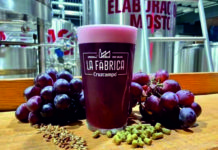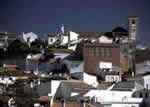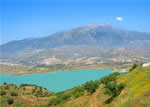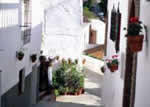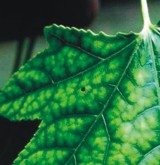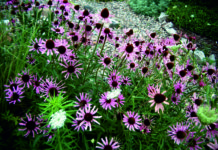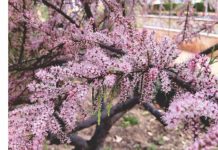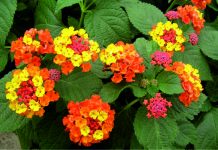|
|
At the Garden Centre, I'm regularly greeted with “little presents” leaves packed between paper sometimes with an infestation of some bug or other, a viral or fungal infection and, often, some mineral deficiency. The leaves of our plants give off signals to us, just as when we are under the weather and it shows in our hair, our eyes, our nails and our skin. The problem for most people is in deciphering these signs and in giving the appropriate treatment. |
March is the month when we “kick start” our plants with fertilisers and, in general, it is a good time to start feeding. However, care must be taken to feed only when it is necessary and not just as an automatic proceedure. Some plants the real toughies need very little, if any, feeding and are best left to their own devices. At the other extreme, plants in pots require regular feeding because their nutrients are flushed through much more quickly because of more frequent watering and potted plants are entirely reliant upon your helping and caring hand.
As many of you know, I personally always promote organic feeds. Automatic and consistent fertilising with chemicals can build up to an excess of nutrients which can only, eventually, end up in our rivers and watertable and hence to our bellies! Organic products can never do that harm they're not only safe for us but for our whole environment too. And their added advantage is that they not only feed the plants but, in the form of compost, also improve the texture of the soil, creating a useful
worms and burrowing insects, which are themselves food sources to many animals and birds.
Remember that we demand more of our garden plants that their cousins growing in the wild. We want them to keep on flowering, to always look green and good and we plant them more densely. However naturally we manage our gardens, we are creating, essentially, an artificial situation. In short we are looking for perfection and, of course, that should not be expected of any living thing! Regular applications of an organic fertiliser will help enormously in providing all the nutrients your plants need to perform well but in a natural manner.
Here in Spain the ubiquitous blue and brown pellets are much seen nitrofoska and 15-15-15. Huge amounts of nutrients are pumped into the plants, promoting lots of lush but weak growth which is rarely tolerant of drought conditions. The verdancy demands extra water; the extra water demands more nutrients. We create addicts plants that need their regular fix. In our gardens, we don't want such dependancy; it's perhaps only suitable in the vegetable garden where we want to produce tender crops quickly.
The three basic requirements of all plant growth are nitrogen, N, phosphorus, P, and potassium, K. Nitrogen is for leafy growth; phosphorus for root growth and potassium for fruit and flowers. Calcium, magnesium and sulphur are also needed as well as other trace elements, notably iron, copper and manganese.
Reading the leaves of our plants helps us to diagnose any problems though it can be complicated because lack of one nutrient can result in poor take-up of another. But there are a few easily read signs we can look for and treat.
Nitrogen deficiency: stunted growth with yellowing leaves and the older leaves die and fall. Be aware that yellowing leaves can also be caused by overwatering, which in itself can lead to a lack of nutrients.
Phosphorus deficiency: very small leaves, often turning purplish with age.
Potassium deficiency: stunted growth and bluish-green leaves, and older leaves are often scorched around the edges.
Calcium deficiency: young leaves yellowish and paler at the margins.
Iron deficiency: yellow leaves with bright green veins.
Magnesium deficiency: leaves with yellow margins and pale green between the veins.
Manganese deficiency: pale green between veins, turning reddish with age.
And two more common problems to look out for:
Sunburn and drought: shrivelled burnt leaves, turning crispy and falling prematurely.
Weedkiller damage: distorted leaves with pale streaks.
These are some of the basic tell-tale signs but, if in doubt, call in and see us at the garden centre where I'll be pleased to offer you advice. We stock a whole range of organic products to rectify plant deficiencies.
Look out for our re-vamped entrance we've had a make-over!
Lorraine Cavanagh has lived in Spain for over 21 years; a mother, grandmother and hispanista, her passions are plants, the environment, food and drink, and travelling within Spain. She owns a small plant nursery, is a landscape gardener and a writer. She also has a weekly spot on OCI radio. Her book Lorraine Cavanagh's Mediterranean Garden Plants has been nicknamed 'the bible' and it is generally available throughout Spain, flexi-cover €24 and hardback €31.
See also “There are No Flies ….. only Foreigners!” a social history of Andalucia and light hearted look at life in Spain.
E-mail: florenaspain@hotmail.com






